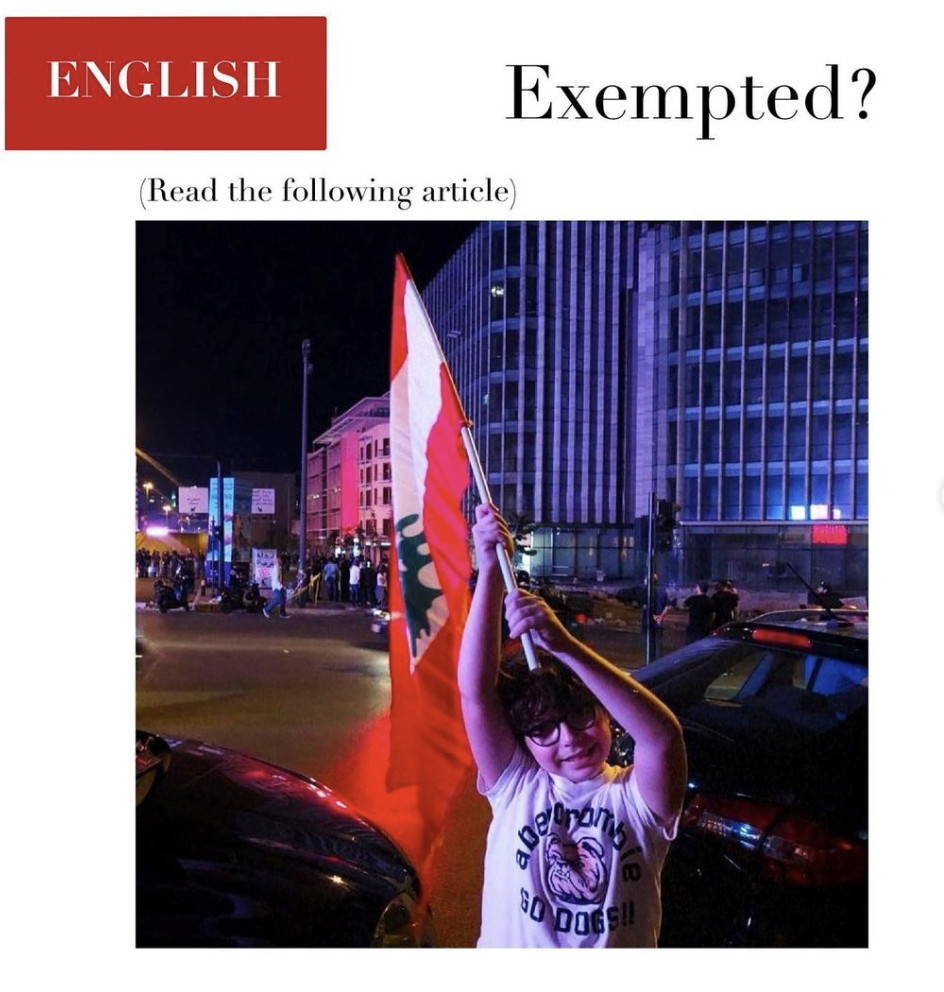Yesterday, I spoke with my uncle on the phone.
I asked him how he was doing.
He replied that he was doing as well as he could.
We talked a bit, and in between jokes, he said to me:
“You know, Inès, I blame myself.
I blame myself because I feel like I deprived my daughters of the Lebanese experience.”
I didn’t understand immediately.
When this conflict began, I made sure they didn’t worry. I explained to them that if things escalated, we would leave, and they would remain safe, and everything would be fine.
Now, I realize I shouldn’t have.
This week, I explained to them that they might experience war, as I did before them.
After all, how else would they truly be Lebanese?
It was another joke.
But there is always some truth in humor.
When he told me that, I almost felt ridiculous.
I skipped that rite of passage.
I was too young to remember the 2006 war,
And I left right after the 2020 explosion.
Am I truly Lebanese?
If I have never hidden in a shelter,
If I have never been anxious at the sound of a low-flying plane,
If I have never feared for my life before 2020,
If I could go to school normally without a plan in place for bombing—
Am I really Lebanese,
If I have never experienced war?
My brother is 14 years old.
In 14 years, he has often been afraid.
He realized he didn’t live in a ‘normal’ country when he was 10.
At just 10 years old, he was out in the streets protesting, chanting slogans, standing on trucks to demand rights he didn’t even know he didn’t have.
He began to be afraid at the age of 11 when he saw our home in ruins,
When he saw our tears,
When he saw the shock in my eyes, the terror.
He started to be afraid when he heard the BOOM,
And when we couldn’t reply to his messages because my parents and I were in Beirut,
When we found him later that evening, trembling.
Since then, my brother startles at every BOOM.
At 12 years old, my brother had to take refuge under his school desk because militia supporters decided to shoot near schools while protesting against justice.
At 12, even school was no longer safe for him.
At 12, he had no escape.
At 12, he understood that coming from Lebanon means surviving,
And not really living.
His 13th year was relatively calm.
He didn’t really fear for his life.
It’s a shame. A year lost…
At 14, he didn’t fear for his life either.
He feared having to leave.
It was then that I realized his training was complete.
Now, he is truly Lebanese.
Lebanese, because when he came to visit me last week, he didn’t tell me he was afraid of war.
He told me that things were going to go badly,
That it didn’t look good.
He explained that his teachers at school had already told them how the classes would be conducted online, just in case.
He told me that some of his friends had already left,
And most importantly,
That he didn’t want to leave like them.
Lebanese, because it’s no longer the danger that scares him,
It’s the idea of fleeing.
It’s being uprooted.
It’s being driven away from his land.
Lebanese, because when his trip came to an end, he was
Eager to see his friends again,
Eager to return…
Lebanese, because war seemed more familiar to him than a life outside Lebanon…
At 14 years old.
So, am I truly Lebanese?
If I haven’t lived through years of terror, like my parents,
If I have never been afraid of being separated from my friends for reasons other than education and our different choices of countries,
If my classes have never truly been interrupted before the Revolution?
I don’t know.
Maybe not.
Maybe, for us,
The skipped generation,
We are the only ones who have truly experienced Lebanon.
Lebanon in its purest beauty,
In its glory (even if it’s a somewhat biased opinion)…
We were just too young to fully realize it.
One last question before closing:
If I haven’t been afraid often, and it’s only in recent years that Lebanon has changed in my eyes, what image should I hold onto?
When I imagine the country, should I see
Its sea and its sun?
Or my tears and the war?
So, here’s another question faced by the exiled Lebanese,
Or rather,
The exempted Lebanese…
I conclude this text with some hopeful thoughts:
I hope my brother won’t retain this image of the country.
I hope (more quietly) that he will always be more afraid of leaving than staying.
I hope that one day, all Lebanese can grow up in the country that I knew.
I hope that one day, I can realize that I, too, never grew up in a peaceful Lebanon.
Never, even if I didn’t experience war.
Never, because war was never an entirely ruled-out option.
I hope,
I pray,
That the innocent can have a chance at life.
I hope that we can,
That we know how to
Give peace a chance.
– Inès Mathieu

